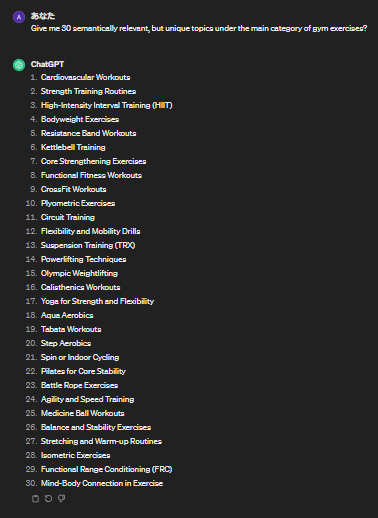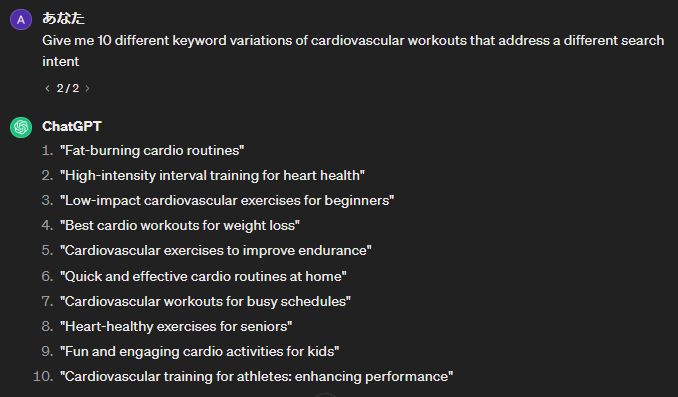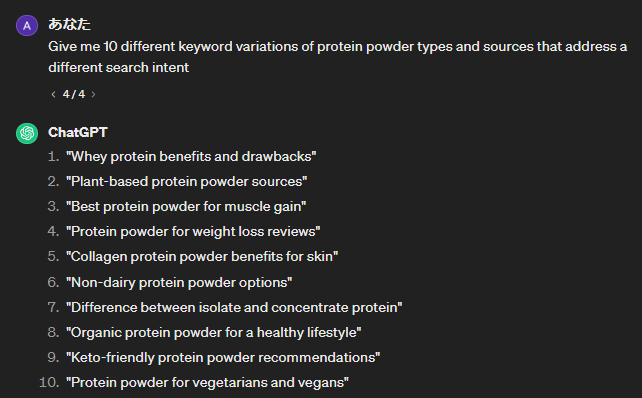Over the past few years, a game-changing SEO strategy has emerged, transforming the landscape of search engine optimization — topical authority. Simply put, topical authority is attained when your website comprehensively covers a subject, surpassing your competitors. The result? Expect a surge in traffic akin to a meteoric rise.
While it may sound straightforward, delving into topical authority reveals its complexity, a realm understood fully by only the elite SEO professionals. That is, until now. In this video, I’ll demonstrate how the free AI tool, ChatGPT, has simplified topical authority to an unprecedented degree, evident in the remarkable traffic boost witnessed on a website where I applied this strategy recently.
Now, let’s clarify the term “exploit” used earlier — it wasn’t intended as such, though the process might feel that way. To demystify it, let’s break down topical authority as a concept. Penning a single article, even with esteemed co-authors like Arnold Schwarzenegger and The Rock, won’t capture Google’s attention on a topic like protein powder.
However, the key lies in consistently producing diverse topical articles such as exploring whether protein powder leads to weight gain or determining daily protein absorption limits. It’s only then that Google acknowledges your website’s evolution into a topical authority on protein, rewarding it with substantial traffic.
While topical authority stands out, Google considers various factors for ranking, including backlinks, content quality, technical SEO, and more. The influence of topical authority is so significant that even if lacking in other signals like backlinks, your website can compete with those seemingly out of its league, as exemplified in a case study by Koray — zero link building, yet substantial traffic gains.
Alright, let’s dive back in. So, the first hurdle on our journey is cranking out a boatload of content to claim that topical authority. Picture this: I delved into the world of protein powder, and it hit me — I needed over 200 unique articles.
Now, that’s no pocket change. Let me break it down for you — 200 articles, each at $0.06/word, with an average length of 1,500 words, rings up to a sweet $18,000. If you’ve got a wordsmith doing one article a day, you’re looking at a six-month gig. Wrangle in five writers, and you could pull it off in 40 days, but trust me, managing that crew is a migraine waiting to happen.
But hold up, no need to sweat it — thanks to AI wonders like ChatGPT, cranking out content is faster than a blink. Stay tuned for my next article where I spill the beans on my foolproof method for crafting AI-generated content that shoots up the Google ladder.
Now, let’s talk about the second bump in the road to topical authority — figuring out what the heck to write to claim that authority status. You’re gunning to be the protein powder guru, right? But how do you figure out what topics to hit? That’s where creating a topical map comes in, and let me tell you, 99% of folks trip up on this step. Lucky for us, ChatGPT is the secret sauce for acing the topical map game too.
Building a topical map manually is like a two-step dance. First, you gather subtopics from all corners — Answer the Public, People Also Ask, Google’s autocomplete, related searches, trusty question reports, Google’s NLP API, and even your rival’s site maps.
It’s a Giga list of keywords waiting to happen. Some buddies can share a page, like “best-tasting protein powder” and “best-flavored protein drink,” but others need their spotlight. Then, you wrangle them into their rightful articles with the help of clustering software.
Sure, this process works like a charm, but it’s a time sucker — talking dozens of hours — and you might need a few tool subscriptions. Now, for a shortcut that won’t cost you a dime, turn to ChatGPT. If you haven’t hopped on the ChatGPT train, hit up chat.openai.com.
Let’s take gym exercises as our ChatGPT guinea pig. Some topics vibe more with gym exercises than others, right? Penning down a bench press article is a no-brainer — everyone, even Google, agrees it’s a gym exercise. But yoga? It’s exercise, sure, but not your typical gym drill.
Recognizing that certain articles pack a punch for topical authority, it makes sense to tackle them first. So, let’s fire up ChatGPT, the AI maestro, and get the lowdown on the most super-relevant subtopics.

And here you have it, cardiovascular workouts, strength training routines, HIT, all the way down to Mind-body connection in exercises. Ain’t no yoga in here.
Now you can ask ChatGPT…

Now, if you repeat this with the 29 other exercises from before, you have a topical map of 300 highly relevant articles to the concept of gym exercises.
The critical thing to remember, these are the articles that are most essential for getting to topical authority, and that’s because of their semantic relevance to the main topic of gym exercises. Let’s do it again with protein powder as an example.

And here we are, types of protein powder, benefits of protein powder, how to choose a protein powder, and so forth.
Now, let’s break that category down.

And here we go, all organized and tidy. But you know what? I’ve got this inkling that the types and sources of the protein powder category go beyond just 10 topics. So, why not ask for 30 or even 40 of these topics?
If we take the 30 topics from the initial step and break them down into 30 unique keywords each, that’s a whopping 900 topics. That’s all it takes to expand using this method. 10, 20, 30, 100 — these are all just numbers thrown out there. Just keep in mind, that the larger you make your map, the less relevant each of its topics might become.
Now, is this ChatGPT topical map process as stellar as the manual way? To spill the beans, probably not. When you’re scraping topic categories from cool places like the Google NLP API and digging into competitor’s site maps, you can uncover some real gems, like protein powder pancake recipes. So, the manual route is going to be more exhaustive, but with the ChatGPT topical map, you make up for it with speed, cost, and relevance.
If we revisit the protein powder topic dump, you’ll see the more semantically relevant topics hanging out at the top, while the less exciting ones linger at the bottom. When you’re penning down your thoughts, starting from the top and working your way down is the ticket to achieving topical authority quicker than if you tackled those topics in a random order.
Now, how do you know when you’ve hit topical authority? Well, your traffic will be skyrocketing like a tent pitched on a camping trip — it’s hard to miss. So, armed with the knowledge of what you need to write, it’s time to get that content down. And hey, why not keep the AI magic flowing to maintain a blend of speed and high quality?
Learn how to create an AI generated blog post that Google loves!
If you want to learn prompt engineering check out the article below:
ChatGPT Prompt Engineering: A Complete Guide For Beginners
If you got any questions, please drop below. I’d love to answer you guys!